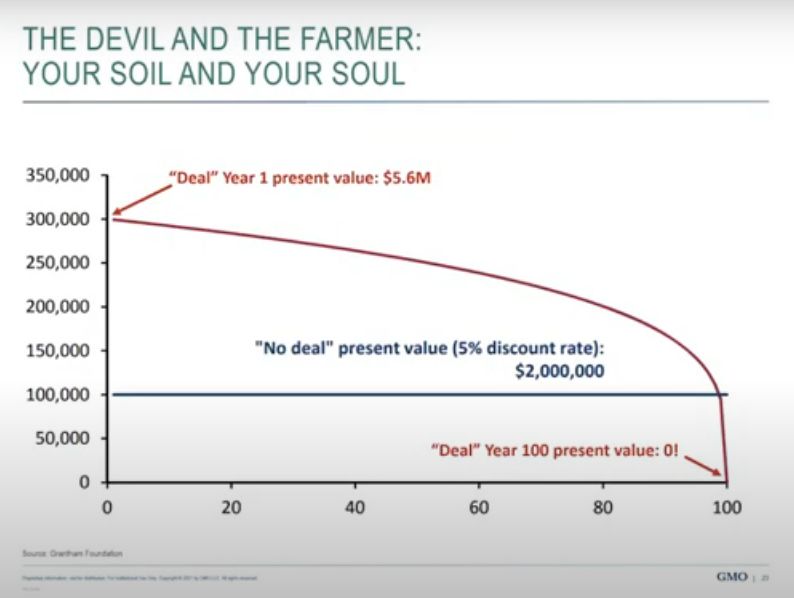In his recent Oxford Lecture, Jeremy Grantham illustrates the trouble with capitalism using his story of the devil and the farmer. Here’s an excerpt from the lecture:
Q1 2022 hedge fund letters, conferences and more
Grantham: This is my story of the devil and the farmer.
The devil goes to a midwestern farmer and says, I will give you three times the profit per year if you sign the contract for your soul, and these contracts always have footnotes, and footnote 21 in this case is that they would lose one percent a year of their soil. And that didn’t worry them because they knew they were losing that anyway, which they are.
The present value of the deal with the devil was 5.6 million. A hundred years later there is no soil. It was a bargain.
But the present value in year 100 is nil. And the poor farmer up the up the road who was too dopey to take the deal, and whose present value was only 2 million who’s making do with 20, 30, 40,000 a year and has to take a part-time job to stay in business.
The present value of his farm in a hundred years, other things being even, would be exactly the same as it was at the beginning, two million.
Every MBA ever minted would make the deal with the devil or fail the course. That is the trouble with capitalism.
You can watch the entire discussion here:
For all the latest news and podcasts, join our free newsletter here.
Article by The Acquirer’s Multiple.


